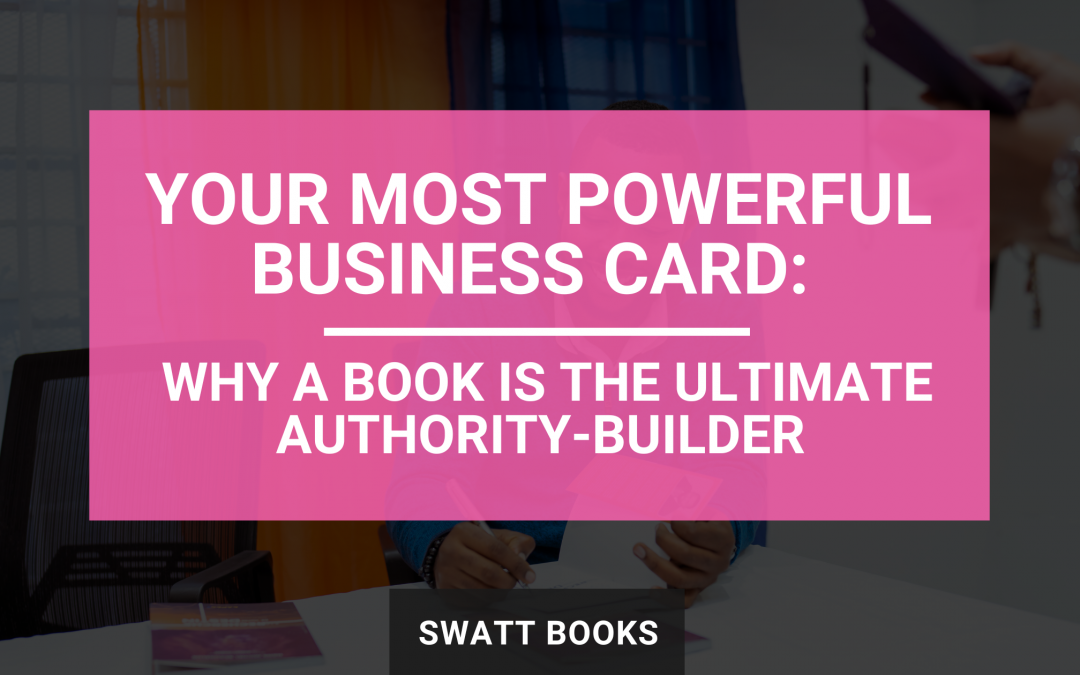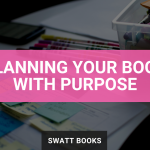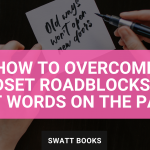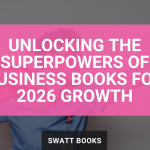Are you amazing at what you do, but struggle to get your greatness known beyond the borders of your current network?
I get it. Many successful entrepreneurs face this challenge. While you’re an expert in your field, becoming a recognised authority is the next leap. A strategically written book is the most powerful tool to make that jump.
In this post, we’ll break down the tangible business benefits of publishing a book, moving it from a “nice-to-have” vanity project to an essential strategic asset. Let’s not beat around the bush – this isn’t just about writing; it’s about building a legacy and a powerful business asset.
Beyond a Business Card: Establishing Instant Credibility
A book leverages the deep-seated “education bias” in our society, automatically positioning you as a credible expert in your field. Think about it: from our earliest school days, we’re taught to rely on books as credible sources of information. This ingrained habit carries over into adulthood, meaning that when someone encounters an “author,” they automatically associate that person with expertise. The sheer perceived time, effort, and knowledge required to write a book immediately elevates an author’s status in our minds. It’s a powerful, almost subconscious validation that you know your stuff.
This isn’t just theory; I’ve seen it transform careers. Take my friend Paul Newton, for example. When I first met Paul, he was a successful magician, earning a few hundred pounds per gig. He was also exploring how his understanding of manipulation and persuasion could apply to fraud prevention and cybersecurity, and was getting traction with corporate talks. His monthly turnover target was modest, enough to pay the bills and spend time with his daughter.
In 2019, I convinced him he needed to write a book. He struggled with the typical roadblocks: “Who am I to write a book?” “No one will want to read that.” “I don’t have time.” But Paul persevered, and on December 1st, 2020, his book, “Mental Theft,” co-authored with Jesse Lawrence, hit the shelves. The impact was nothing short of magical. Paul’s original £200-£300 per gig fee increased tenfold, and his monthly earnings skyrocketed to over seven times his previous average.
He told me that 80-90% of his speaking invitations, which now included Dubai, America, and Stockholm, came directly from the book. One trip to Stockholm even led to a non-executive director position, adding £60k/year for just one day of work every two months. Paul summed it up perfectly:
“It’s possibly the most expensive business card I could have ever thought of, but oh my word, the returns on it are much better than any business card you could ever have… There is something magical when somebody introduces you on stage and you know that they’ve got up on the screens ‘Paul Newton, Author’. It puts you into a very different bracket compared to Paul Newton, the magician who messes around with elastic bands.”
This isn’t just about a title; it’s about the profound shift in perception that being a published author brings. It’s about leveraging that education bias to leapfrog your competition and establish yourself as the undeniable authority in your field.
What actionable step can you take this week to start leveraging this “education bias” for your own brand? Perhaps update your LinkedIn bio to include “Aspiring Author” or start outlining your book’s core message.
Your Silent Salesperson: How a Book Pre-Qualifies Ideal Clients
Your book works 24/7 to attract, educate, and warm up your ideal clients, meaning every sales conversation you have is with someone who is already convinced of your value. Imagine the effect on your sales conversion if every sales meeting you had was with someone already wanting to do business with you.
That’s the kind of impact a strategically written book can have as a lead-generation tool. It extends your reach far beyond your immediate network, attracting exactly the right people who resonate with your message and need your services.
One of the most powerful aspects of this is how a book filters out the “tire-kickers.” When a prospect reads your book, they’re essentially pre-qualifying themselves. They learn what you do, what you stand for, and how you can help them. If they’re not a good fit, they’ll move on, saving you valuable time. But if they are a good fit, they arrive at your sales conversation already primed, convinced of your value, and often willing to pay premium fees.
As I often say, humans are a lazy species; we rarely put in more than what is required. You might give away your “secrets” in your book, but most readers will still need your nuanced guidance to implement them effectively. This is where the magic happens: they’ve seen your expertise, tried to apply it, and now they want your direct help.
I experienced this firsthand with my first book, “Stress-Free Self-Publishing.” Before its publication in May 2019, I typically had about five book projects in my production schedule. By the end of my two-month launch campaign, that number had tripled to 16 client contracts, either signed or actively in production! I can confidently say that publishing my book tripled my business in just two months. The financial return was clear: my initial publishing investment of £3,800 (including editing, cover design, and my own time for design and publishing management) generated roughly £29,000 in additional profit for my business in that short period. That’s a £24,000 return on investment in just eight weeks!
And here’s the kicker: that 300% growth wasn’t a temporary spike. For the past four years, having 10-20 books in my production schedule has become my new norm. This wasn’t just about selling copies; it was about attracting ideal, pre-qualified clients who valued my expertise.
To implement this, start by identifying the core problem your ideal client faces that your book can solve. Then, craft your book’s content to provide genuine value, demonstrating your unique approach. Finally, ensure your book clearly guides readers on how to take the next step to work with you, whether it’s a call-to-action to visit your website, join a webinar, or book a consultation.
Your book isn’t just a product; it’s your most effective, always-on salesperson.
Conclusion
Stop thinking of a book as an expense; it’s a powerful, high-ROI marketing investment that builds authority and generates qualified leads like nothing else. It’s a strategic asset that works tirelessly to elevate your brand, attract your ideal clients, and open doors to opportunities you never imagined. This is the foundational “why” we explore in Part One of “The Write Strategy.” It’s the motivation you’ll need to see the project through and reap the incredible rewards.
What is the single biggest business challenge a book could solve for you right now?
Share your thoughts in the comments below. If you’re ready to turn your expertise into your most powerful business asset, grab a copy of “The Write Strategy” and let’s get started.
Your journey to becoming a recognised authority begins today.





